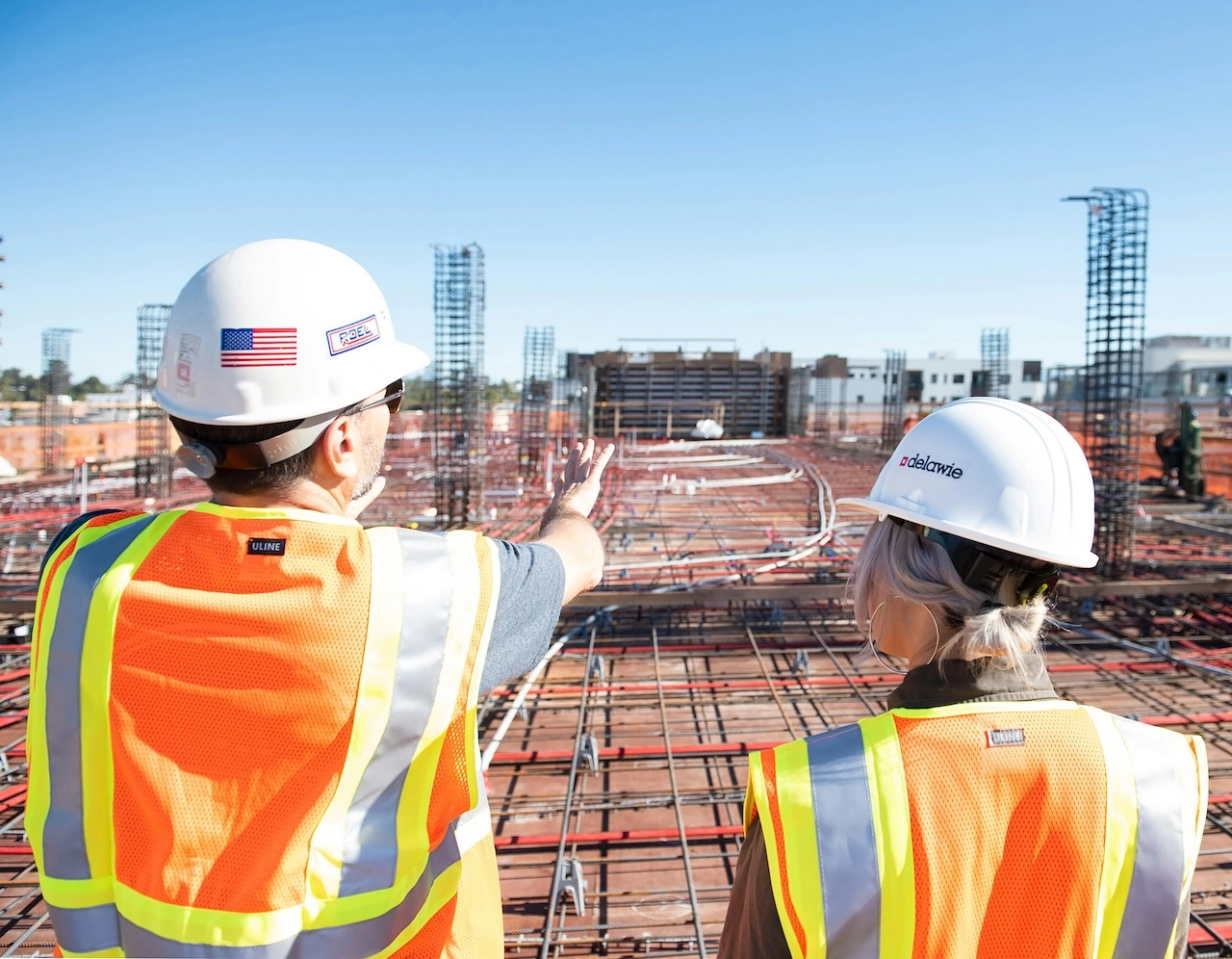Why Construction?
Starting a new venture can feel like stepping into an entirely different world, especially when you’re trying to figure out how to start a construction company. Construction is a large, ever-evolving field with opportunities for big profits and long-term success. Whether you’re into building homes or managing large-scale commercial projects, the need for construction work never really goes away.
In recent years, the industry has been propelled forward by new materials, eco-friendly building practices, and digital tech that streamlines everything from planning to final inspection. This ongoing growth trend provides an open invitation for those eager to build a construction startup. It also means that staying adaptable and innovative can place you miles ahead of your competition.
The construction field comes with its unique challenges—think strict regulations, safety concerns, and high overhead—but in return, it can offer a stable market with substantial returns. For folks looking for small business ideas, the promise of consistent demand can be a major motivator.
Setting Realistic Expectations
Before diving in, it’s crucial to lay out your goals and understand the costs to start a construction company. Too many budding entrepreneurs jump in blindly and realize, halfway through, they’re already over budget. So, you’ll want to crunch your numbers and check your financing options meticulously.
Starting a construction company isn’t a get-rich-quick scheme—it’s about measured business growth, strategic planning, and hands-on supervision. You’ll likely wear multiple hats at the beginning, from drafting contracts to ordering materials, so planning for professional help along the way is key.
It also helps to network with seasoned industry pros or mentors who’ve traveled this path. Hearing real stories—both the victories and the nightmares—will help you figure out how to sidestep common pitfalls as you embark on steps to launch a construction business.
Residential vs. Commercial Construction Market
A big part of knowing how to start a construction company successfully lies in figuring out which segment of the market you want to tackle. Residential construction focuses on homes, apartments, and condos, while commercial construction involves office buildings, retail spaces, and other large-scale structures.
Residential clients might value personal relationships and detailed communication about design choices. They’re often more emotionally invested because it’s their future home. Commercial clients, on the other hand, may be more data-driven, emphasizing budgets, timelines, and regulatory compliance. Both segments have pros and cons—residential projects can feel more personal but can be smaller in budget; commercial projects might be more profitable, yet they often come with higher stakes and stricter guidelines.
Understanding the nuances of each area will help you shape your start a construction business plan. Whether you’re aiming for cozy homes or multi-level malls, it’s all about using your resources wisely and aligning them with your target market.
Market Trends and Future Outlook
Tech breakthroughs like drones for site surveys or Building Information Modeling (BIM) software have drastically changed how people manage construction projects. Staying updated on these trends can differentiate you from competitors who rely solely on traditional methods. If you’re prepared to invest in cutting-edge tools and skilled labor to operate them, you’ll find yourself on the fast track to business growth.
Meanwhile, sustainability isn’t just a buzzword. Eco-friendly building materials, solar panel installations, and energy-saving designs are becoming mainstays for modern construction companies. Incorporating green practices can attract environmentally conscious clients and potentially qualify you for tax incentives or grants. The ability to pivot toward these forward-looking trends can position you as a leader in entrepreneurship, giving your new business a unique selling proposition.

Elements of a Construction Business Plan
A solid start a construction business plan is your roadmap. It should detail everything from your mission statement and financial projections to your target clients and marketing strategies. Think of it as a security blanket—it will keep you grounded when unexpected issues pop up, like a permit delay or a sudden spike in material costs.
Begin with a clear set of goals. For example, your initial objective might be to secure and complete two residential projects in your first year. Next, draw up a realistic budget. Factor in equipment purchases, wages, insurance, and administrative costs. If you’re unsure, speaking with a local accountant or exploring resources from the U.S. Small Business Administration (SBA) can guide your financial planning.
Finally, map out your timelines. Know how long you expect each phase to last, from design to final inspection. This timeline helps you forecast staffing needs and manage client expectations. Keep in mind that many new business owners underestimate how long things take, so give yourself a little buffer to handle the unexpected.
Defining Your Niche
When you build a construction startup, you don’t have to do everything. In fact, trying to tackle it all—residential, commercial, remodeling, roofing, landscaping—can dilute your brand and stretch your resources too thin. Instead, figure out which area you’re most passionate about and where demand seems high.
Conducting market research can be as simple as browsing local business listings, talking to homeowners, or scanning online forums. You could also explore specialized data and statistics to see which niche is poised for the most growth in your region. If housing renovations are trending, that might be your clue to focus on remodeling services. Or, if you notice a steady rise in commercial developments, you can set your sights on offices or retail projects.
By pinning down your niche, you set yourself apart from the competition. Clients often prefer specialists who know a particular slice of construction inside and out. Focusing your resources on a niche can also help you hone your expertise, reduce overhead, and streamline operations for consistent business growth.
Estimating the Initial Costs
It’s no secret that one of the biggest roadblocks for new entrepreneurs is money. If you aren’t careful, the costs to start a construction company can balloon quickly. That’s why creating a detailed budget—down to the last screw and nail—gives you a more accurate picture of your financial needs. Online cost calculators can be super handy for coming up with a rough figure.
When you’re estimating your expenses, don’t forget to factor in not only materials and labor but also hidden expenses like travel, insurance, licensing fees, and tool maintenance. Break everything down into categories such as “heavy machinery,” “safety gear,” “administrative costs,” and so on. This organized approach helps you see potential red flags before they become significant issues.
Always add a little extra for contingencies—sometimes the price of lumber skyrockets unexpectedly, or you may need additional manpower to meet a deadline. Properly budgeting from day one is one of the most essential steps to launch a construction business without running into cash-flow crises.
Securing Funding
Once you know what you need financially, the next hurdle is figuring out where the money will come from. Many new businesses rely on small business loans or lines of credit. Banks and lending institutions will want to see a well-thought-out start a construction business plan showing how you’ll manage your operations and repay the loan.
Alternatively, consider investors or partners. Angel investors might be interested if you can demonstrate a strong market demand and a clear plan for business growth. Some local governments offer grants or incentives for companies that prioritize eco-friendly construction methods. Don’t be shy about applying for these opportunities, as they can provide a head start without saddling you with debt.
A popular approach is to combine various funding sources. For instance, you might secure part of your budget through an investor and the rest through a traditional loan. Having multiple funding streams can make you more resilient if one source falls through or if costs end up being higher than you initially projected.

Business Structure and Requirements
Choosing the right legal structure is a critical step in learning how to start a construction company. The simplest approach is a sole proprietorship, but it offers minimal legal protection for your personal assets. Many construction entrepreneurs opt for a Limited Liability Company (LLC), which shields personal assets from business debts and legal issues.
Other business structures, like S Corporations or Partnerships, might be more suitable if you’re planning to take on big projects or multiple investors. Each setup has different tax implications and regulatory requirements, so it’s wise to consult a business attorney or a certified accountant to ensure you pick the best route.
Once your structure is set, register your business name with the appropriate state agencies. Make sure your company name aligns with your branding goals—something memorable and relevant to your niche. From there, double-check zoning restrictions, environmental regulations, and any other local guidelines that might affect your scope of work.
Permits and Insurance
Construction is often heavily regulated due to safety concerns, so expect to acquire multiple permits. These can range from building permits to environmental impact assessments, depending on the type of projects you undertake. Failing to secure proper permits can lead to hefty fines and even project shutdowns, so it’s crucial to handle these details early.
Insurance coverage is another non-negotiable. Entrepreneurship in construction comes with risks: on-site accidents, damage to property, or worker injuries. That’s why general liability insurance is essential—it safeguards your business from significant financial hits if something goes wrong. Workers’ compensation coverage is equally critical to protect your team members and comply with legal requirements.
Think of permits and insurance as the backbone of your operational credibility. By staying above board, you reassure clients that you’re professional, prepared, and trustworthy. This aspect of compliance can set you apart in a crowded market, ultimately leading to business growth and a sterling reputation.
Essential Roles
Your team can make or break your new construction company. At a minimum, you’ll likely need project managers who coordinate timelines and client communications, architects or drafters if you handle design in-house, and skilled laborers who bring the plans to life. If you specialize in a niche like roofing or electrical work, you’ll want experts in those fields to ensure quality and compliance.
Hiring seasoned professionals can speed up your workflow and boost client satisfaction. But don’t underestimate the value of entry-level laborers who are eager to learn. A good mix of experienced and up-and-coming talent can stabilize your workforce and contribute fresh ideas.
When you’re thinking about how to start a construction company, remember that investing in your team’s growth pays off in the long run. Providing training, mentorship, and certification opportunities not only enhances skill sets but also creates loyalty. A happy, well-supported crew often translates to better projects and glowing client reviews.
Recruitment and Retention
Recruitment might involve advertising on job boards, networking with local trade schools, or attending industry events. Word-of-mouth referrals also work wonders—your existing team members might know skilled folks who are seeking new opportunities. Be upfront about job expectations, potential for advancement, and the vibe of your company culture.
Retaining good employees is just as critical. Construction can be tough, demanding work, so consider offering competitive wages, benefits, and a positive work environment. Some companies create incentive programs, rewarding crews who finish projects on time or under budget with cash bonuses or extra days off. These gestures show your team you value their contributions.
Ongoing training is another retention tool. Whether it’s safety seminars, new equipment demonstrations, or leadership workshops, employees appreciate a workplace that invests in their professional development. When people feel supported, they’re more likely to stick around and recommend your company to their peers.

Machinery Must-Haves
Having the right machinery is the engine that drives successful construction projects. Depending on your scope, you might need excavators for earthmoving, concrete mixers for foundations, and specialized equipment like scaffolding orforklifts. Good-quality machinery not only speeds up your workflow but also helps reduce error rates and safety risks.
Start with the essentials. You can lease or buy equipment, but be mindful that purchasing outright often requires a larger initial investment. If leasing allows you to stay flexible, that might be the best route in the early stages. As your business growth continues, you can gradually expand your inventory of owned machinery.
Keeping up with maintenance schedules is equally important. Even the best equipment breaks down if it’s not properly cared for. By prioritizing regular check-ups and servicing, you minimize downtime and keep your projects on track—helping you achieve your start a construction business plan deadlines without undue stress.
Safety and Compliance
Safety in construction is paramount. Hard hats, gloves, high-visibility vests, and steel-toed boots are just the tip of the iceberg. You’ll also need specialized personal protective equipment (PPE) like ear protectors, safety goggles, and harnesses for specific tasks. Always ensure your crew understands how to use safety gear correctly, from strapping on harnesses to following lockout/tagout procedures on machinery.
Routine safety inspections and audits not only keep everyone safe but also shield your business from legal issues and expensive fines. Maintaining logs for inspections, repairs, and safety drills is a good way to prove compliance if authorities come knocking.
The importance of a robust safety culture can’t be overstated—on top of legal compliance, it’s part of good entrepreneurship. Projects often involve unpredictable weather, heavy equipment, and challenging tasks, so the better prepared your crew is, the fewer incidents you’ll face. And fewer incidents typically mean lower insurance premiums and happier clients.
Common Mistakes to Avoid
Overlooking Regulations
When you’re learning how to start a construction company, it’s easy to get swept up in the excitement of new projects and forget about the smaller details. Ignoring local building codes or skipping permit requirements can backfire big time. Whether it’s a hefty fine or a forced project shutdown, regulatory missteps can destroy your budget and your reputation.
Make compliance a core part of your plan from day one. Keep a checklist of all the permits and safety certifications you need. Stay updated on changes in building regulations by following relevant government websites or subscribing to industry newsletters. Whenever you land a new project, review the local rules carefully, and seek legal counsel if you’re unsure.
Even if you think you’re operating in a gray area, err on the side of caution. Long-term success often hinges on honesty, transparency, and a proactive approach to legal compliance. The potential cost of a violation or lawsuit dwarfs any short-term savings from cutting corners.
Underestimating Costs
Underestimating the costs to start a construction company can cripple a fledgling business. Construction projects are notorious for unforeseen expenses—like foundation issues, rotten beams discovered during a remodel, or last-minute design changes from clients. If you haven’t padded your budget for these surprises, you could find yourself tapping into emergency funds or stalling operations.
Material prices can fluctuate rapidly, especially in volatile markets. Keeping a close eye on supply costs, negotiating fixed-price contracts with suppliers, and stocking up on materials when prices are low can mitigate some of these risks. But always have a contingency budget—a buffer of at least 10% to 15% of the total project cost.
Delays can also be a massive drain on finances. Weather, labor shortages, and permit approvals can all shift timelines. Clear communication with your team and clients, as well as realistic scheduling, can help minimize these setbacks. Over time, the experience you gain will teach you how to forecast these pitfalls more accurately, so you can refine your start a construction business plan for even better efficiency.

Key Takeaways
Learning how to start a construction company isn’t a one-size-fits-all journey. It requires a mix of market research, financial planning, legal awareness, and genuine leadership. Start small if you need to. Focus on your niche and maintain a hands-on approach until you’re comfortable delegating tasks. No two construction startups are the same, and that’s part of what makes this industry so dynamic.
One of the best ways to ensure success is to keep on learning—stay updated on industry trends, attend workshops, and engage in continuous training. By doing this, you’ll remain flexible and ready to pivot when the market or your clients demand new solutions. And above all, treat your clients and team members with integrity and respect.
With the right blend of preparation and passion, you can transform your small business ideas into a thriving entity that stands the test of time. Construction might be challenging, but it’s also a field rich with opportunity for business growth.
FAQs
Q1: What’s the best way to estimate the costs to start a construction company?
A1: Start by identifying every potential expense category—equipment, labor, permits, insurance, and materials. Use online calculators to get ballpark figures and add a contingency of around 10% to 15% to cover unexpected expenses.
Q2: Do I need a formal degree to build a construction startup?
A2: Not necessarily. Practical experience, trade certifications, and a solid network can be just as valuable. However, having formal education in construction management or business can offer an advantage in planning and operations.
Q3: How can I secure funding if I don’t have a lot of personal capital?
A3: Look into small business loans, angel investors, or even crowdfunding platforms. Local and federal grants might also be available if your project aligns with sustainability or community development initiatives.
Q4: What permits are typically required to begin construction projects?
A4: It depends on your location and the scope of your project. Generally, you need a building permit, zoning clearance, and possibly environmental permits. Check your local government’s website or consult a legal expert for detailed requirements.
Q5: How long does it usually take to see profits in the construction industry?
A5: Timelines vary based on project size, your business structure, and market conditions. Some companies see profits within the first year, while others take longer due to high initial investments in equipment and labor.
